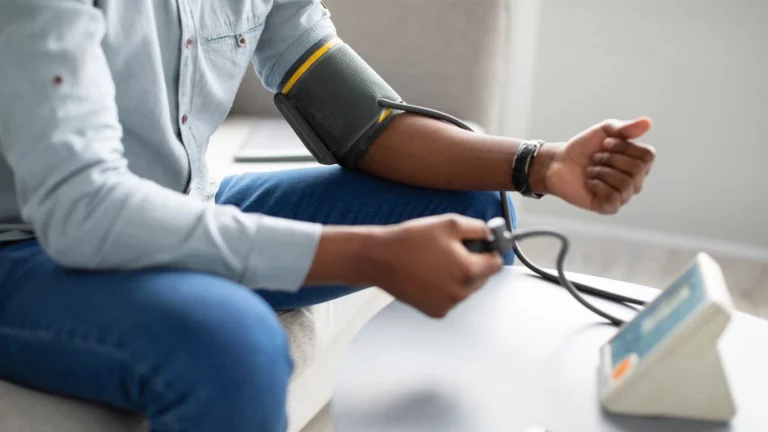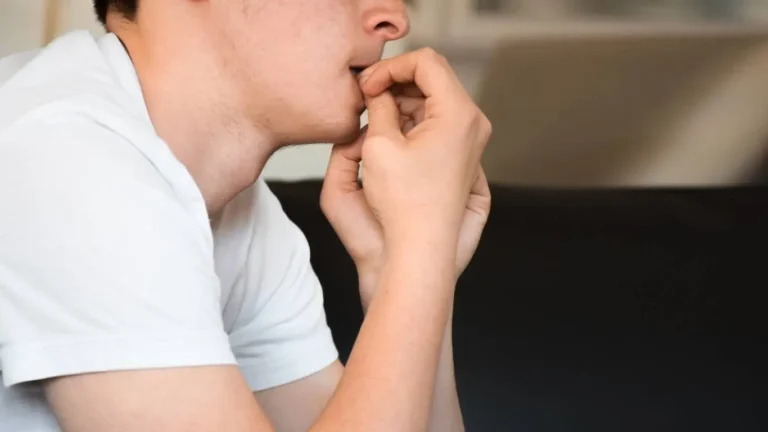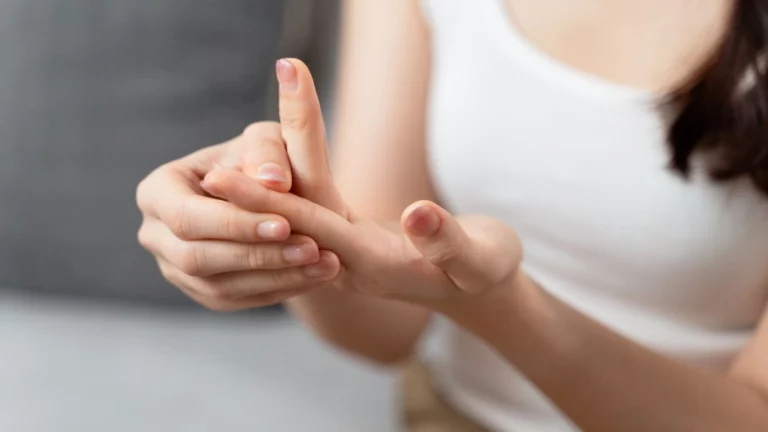How Dehydration Worsens Acid Reflux: Surprising Truths You Need to Know
If you’ve ever dealt with that annoying burning sensation creeping up your throat, you’re definitely not alone. As someone who’s worked side-by-side with GI doctors and watched countless patients struggle with reflux symptoms, I’ve learned there’s way more to acid reflux than spicy food and late-night pizza. One thing many people overlook? How dehydration affects acid reflux. Yep, not drinking enough water could be quietly messing with your gut and turning minor discomfort into full-blown GERD symptoms. Let’s dive into what’s really going on inside your digestive system when you’re low on fluids.
Understanding Acid Reflux: What’s Really Happening?

Before we zoom into the dehydration connection, let’s cover the basics. Acid reflux happens when stomach acid sneaks back up into the esophagus. Ideally, the lower esophageal sphincter (LES)—basically the gatekeeper between your stomach and esophagus—should stay shut after food passes through. But sometimes it gets a little lazy or weak, and boom, the acid makes its way up.
When I was working intake at the GI clinic, I can’t tell you how many patients chalked up their symptoms to “just heartburn,” only to find out their LES wasn’t doing its job. Whether it’s bloating, burning, or that bitter taste in your mouth—there’s always more going on beneath the surface.
Common Triggers You’ve Probably Heard (and Maybe Ignored)
- Spicy foods
- Caffeine and alcohol
- Large meals right before bed
- Smoking
- Stress
These are the usual suspects we all know. But in my experience, people often don’t think about hydration—or the lack of it—as part of the problem. That’s where things get interesting.
How Dehydration Affects Acid Reflux

Here’s the thing: your digestive system thrives when you’re well-hydrated. Water helps keep the contents of your stomach moving smoothly, supports mucosal lining in the GI tract, and even helps neutralize excess stomach acid. When you’re not drinking enough, that whole balance can go sideways.
Thickened Stomach Acid? Yep, It’s a Real Thing
Think of it this way—when you’re dehydrated, your body produces less fluid overall. That includes the protective mucus in your esophagus and stomach. Without that buffer, stomach acid feels way more intense. Not only that, the acid itself can become more concentrated. I once had a patient who swore her reflux came out of nowhere, only to admit she’d been chugging iced coffee all day and skipping water. Sound familiar?
Sluggish Digestion Leads to Increased Pressure
Water plays a role in digestion by helping break down food and move it along. When that process slows down due to dehydration, food lingers in the stomach longer. More time in the stomach = more acid production. And with that added pressure, the LES can give way more easily, letting acid flow right back up.
Weakened LES Function From Electrolyte Imbalance
Another sneaky link? Electrolytes. When you’re dehydrated, your electrolyte balance—especially magnesium and potassium—can get thrown off. These minerals help muscles (like the LES) contract properly. So if the LES isn’t closing tightly, acid reflux becomes a lot more likely. It’s wild how something as simple as water can affect muscle function, but I’ve seen it in patient charts more times than I can count.
Signs You Might Be Dehydrated (Besides Just Feeling Thirsty)

Let’s be real—most of us don’t sip water all day like we should. But your body will usually drop some hints that it’s running low:
- Dark yellow urine (or not peeing much at all)
- Dry mouth or bad breath
- Fatigue and brain fog
- Dry skin or lips
- Muscle cramps or dizziness
These symptoms might not scream “digestive issue,” but they’re red flags your GI system isn’t getting what it needs. A lot of reflux patients I’ve worked with were surprised to learn how these general hydration signs connected with their gut symptoms.
Real Talk: What I Noticed Working in GI
One thing I always asked patients during intake was how much water they were actually drinking. You’d be shocked how many folks admitted to going all day on soda or coffee, with barely any plain water. When they started drinking more water consistently? Big difference in symptoms. Not overnight, but within a week or two, some patients said their reflux was way more manageable without even changing their meds.
It’s honestly empowering—because drinking more water is such a simple step, but it can give your esophagus and stomach the support they need to function better.
How Proper Hydration Can Actually Soothe Your Gut

Alright, so we’ve gone over the trouble dehydration can stir up in your digestive system—but let’s flip the script. When you actually start giving your body enough water, magic happens (well, maybe not magic, but pretty close!). I’ve watched patients go from constant discomfort to finally getting some relief, all from tweaking their daily water intake. It’s one of those “why didn’t anyone tell me this sooner?” moments.
Water Helps Dilute Stomach Acid Naturally
One thing I always remind patients: water isn’t just hydrating you—it also acts like a gentle buffer. It helps dilute stomach acid, especially between meals. I’ve seen folks who used to chug antacids daily report that sipping water throughout the day actually made those midday flare-ups less intense. Not to mention, drinking water before or after meals (but not right in the middle) can help your stomach handle digestion more smoothly.
Staying Hydrated Improves Gut Motility
Hydration keeps things moving along the GI tract, and that means less bloating, less pressure, and fewer reflux episodes. When the bowels slow down—something we see a lot in dehydration—food just sits there, fermenting and gassing things up. That creates the perfect storm for acid reflux. A good rule of thumb? If you’re dealing with sluggish digestion, it’s not just fiber you need—water plays a huge role too.
It’s Not Just Quantity—Timing Matters Too
Weirdly enough, some patients think guzzling a huge bottle of water in the morning makes up for skipping it all day. Not so much. I always suggest breaking it up—morning, midday, and evening sips. Think of your gut like a plant. Would you dump a gallon on it once and expect it to thrive all day? Nah. Same goes for your stomach and esophagus. Gentle, steady hydration works better.
Tips to Stay Hydrated Without Even Thinking About It

Look, I get it. We’re all busy, and remembering to drink water isn’t always top of mind. But here are a few tricks I’ve picked up from patients (and used myself!) to keep hydration on autopilot:
- Start your day with water: Before coffee, before breakfast—just 8 oz to get the gut going.
- Set a phone reminder: Seriously, it works. A quick buzz every 2-3 hours makes a difference.
- Carry a reusable bottle you actually like: It sounds silly, but if the bottle feels good in your hand, you’re more likely to use it.
- Flavored water with a purpose: Add cucumber, lemon, or a splash of juice—whatever gets you sipping without reaching for soda.
- Track it with your meals: Link hydration to daily habits—like drinking a glass of water before every meal or snack.
I once had a patient who treated water like medicine—literally scheduled it into her pill organizer times. It was quirky, but she saw real improvements in both reflux and her overall digestion.
The Role of Electrolytes in Hydration & Reflux Management

Here’s something we don’t talk about enough: not all hydration is created equal. Water’s great, but when your body’s running low on key electrolytes like magnesium, calcium, and potassium, it can throw things off—even if you’re drinking a decent amount of water.
Why Electrolytes Matter for Your LES
The lower esophageal sphincter is technically a muscle, and muscles need electrolytes to function. I’ve seen cases where patients were chronically low in magnesium—whether from poor diet, meds like PPIs, or stress—and their reflux was harder to control. Once we looked into that and made changes, including electrolyte-rich fluids, things started to click into place.
Simple Ways to Support Electrolyte Balance
You don’t need fancy sports drinks (most are packed with sugar anyway). Here are a few better choices:
- Coconut water: Naturally rich in potassium and magnesium
- Leafy greens + water-rich fruits: Think spinach, bananas, oranges, watermelon
- Bone broth: Packed with minerals and super gentle on the gut
- DIY electrolyte mix: A pinch of sea salt, a squeeze of lemon, and a dash of honey in your water
One patient started making her own little electrolyte mix every morning and noticed her bloating and cramping practically vanished. No meds—just smarter hydration and mineral support.
Common Hydration Mistakes That Worsen Reflux
Okay, so here’s where it gets real. Just drinking water isn’t always enough if you’re unintentionally sabotaging your efforts. These are some hydration “oops” moments I’ve seen over and over:
- Drinking too much water during meals: This dilutes stomach acid and can mess with digestion timing. Better to sip before and after, not during.
- Confusing thirst with hunger: You snack when you really need water. That extra food creates more acid = more reflux.
- Relying on carbonated drinks: Sparkling water feels hydrating but can add pressure in the stomach and trigger symptoms.
- Skipping water after workouts: Even minor dehydration post-exercise can tighten up your gut and mess with motility.
- Chugging ice-cold water: Sounds refreshing but can slow digestion and make reflux worse for some people.
We’re not aiming for perfect, just more aware. Even changing one of these habits can bring relief, and I’ve seen it happen first-hand.
When Water Alone Isn’t Enough: Other Lifestyle Changes to Consider

So by now, we know how dehydration affects acid reflux—but let’s be real, sometimes hydration is just one piece of a much bigger puzzle. I’ve worked with so many patients over the years who felt frustrated because they were drinking more water, doing all the “right things,” and still struggling. That’s when we start looking at the whole picture—hydration plus diet, movement, stress, sleep, and meds.
Eating Habits That Complement Hydration
Water’s important, but what and how you eat can either support or sabotage your efforts. Here’s what I’ve seen work best for patients managing reflux:
- Smaller, more frequent meals: Less food = less pressure on the LES.
- Limit trigger foods: Everyone’s different, but common ones include tomatoes, citrus, onions, chocolate, and fried stuff.
- Stay upright after eating: I tell folks: if you’re reclining after dinner, you’re inviting reflux to the party.
- Chew slowly, eat mindfully: Not just for digestion—slower eating helps you recognize fullness before it’s too late.
I once had a patient who swore reflux was haunting her every night. After reviewing her habits, we realized she was snacking on oranges late in the evening while binge-watching shows in bed. Once we swapped the snacks and adjusted meal timing, the change was huge.
Sleep & Reflux: The Connection You Didn’t Expect
This is a big one. Poor sleep posture, especially laying flat, can really fire up reflux symptoms—especially when the stomach is still full. At the clinic, I often suggested the following to patients dealing with nighttime reflux:
- Elevate the head of the bed: A 6-8 inch incline makes a big difference.
- Sleep on your left side: Weird, I know—but it helps keep the LES above the stomach.
- Avoid late-night meals: No eating 2–3 hours before bedtime. Seriously.
One patient I’ll never forget had been on PPIs for years with little relief. Turns out, she was eating dinner at 9 PM and going straight to sleep by 9:30. Once we shifted that routine and added some basic hydration strategies, her symptoms dropped dramatically within a few weeks.
Medications, Dehydration, and Reflux—The Overlooked Trio

Another sneaky factor? The medications you’re on. A lot of people don’t realize that certain meds can contribute to dehydration and worsen reflux symptoms at the same time. I’ve flagged this more times than I can count in med review charts.
Common Culprits That May Dry You Out
- Diuretics: Often used for high blood pressure—these increase urination and can sneakily dehydrate you.
- Anticholinergics: Used for allergies or overactive bladder—they slow down digestion and dry out the body.
- NSAIDs: Ibuprofen and similar drugs can irritate the stomach lining and promote acid production.
If you’re on these and noticing worsening reflux, bring it up with your provider. I’ve had patients work with their GI or primary care doc to swap or adjust medications, and it made a world of difference. Hydration often helped buffer the effects too, but meds can be powerful contributors.
When to Bring In a Pro (and What to Ask)
If you’ve tried hydration, diet changes, sleep adjustments—and reflux is still wreaking havoc—it might be time to chat with a specialist. I always encourage patients to advocate for themselves. Some good questions to bring up include:
- Could any of my medications be making reflux worse?
- Should I get checked for a hiatal hernia or H. pylori?
- Are my current hydration habits supporting my digestion?
- Would a nutritionist or dietitian referral help?
Your GI team is there to help you dig deeper. I’ve seen so many patients feel empowered just by asking the right questions and getting a personalized plan—not a one-size-fits-all fix.
Final Thoughts: Small Habits, Big Relief
When you’re dealing with acid reflux, it can feel like you’re constantly putting out fires. But from what I’ve seen in the clinic, the most lasting relief comes from the smallest, most consistent changes—like simply drinking enough water throughout the day.
It’s not about perfection. It’s about progress. Maybe you start by swapping one coffee for water or setting a hydration reminder at lunch. The little stuff adds up. And honestly, hearing a patient say, “I finally slept through the night without that burning feeling”—that’s what it’s all about.
Trust your gut (literally), stay curious, and don’t underestimate what hydration can do—not just for reflux, but for your entire digestive health journey.
References
- https://www.ncbi.nlm.nih.gov/
- https://www.clevelandclinic.org/
- https://www.mayoclinic.org/
- https://www.webmd.com/
Disclaimer
This article is based on personal experience working in a gastroenterology clinic and general health education. It is not a substitute for professional medical advice, diagnosis, or treatment. Always consult your healthcare provider with any questions about your health or medical conditions.

Camellia Wulansari is a dedicated Medical Assistant at a local clinic and a passionate health writer at Healthusias.com. With years of hands-on experience in patient care and a deep interest in preventive medicine, she bridges the gap between clinical knowledge and accessible health information. Camellia specializes in writing about digestive health, chronic conditions like GERD and hypertension, respiratory issues, and autoimmune diseases, aiming to empower readers with practical, easy-to-understand insights. When she’s not assisting patients or writing, you’ll find her enjoying quiet mornings with coffee and a medical journal in hand—or jamming to her favorite metal band, Lamb of God.







